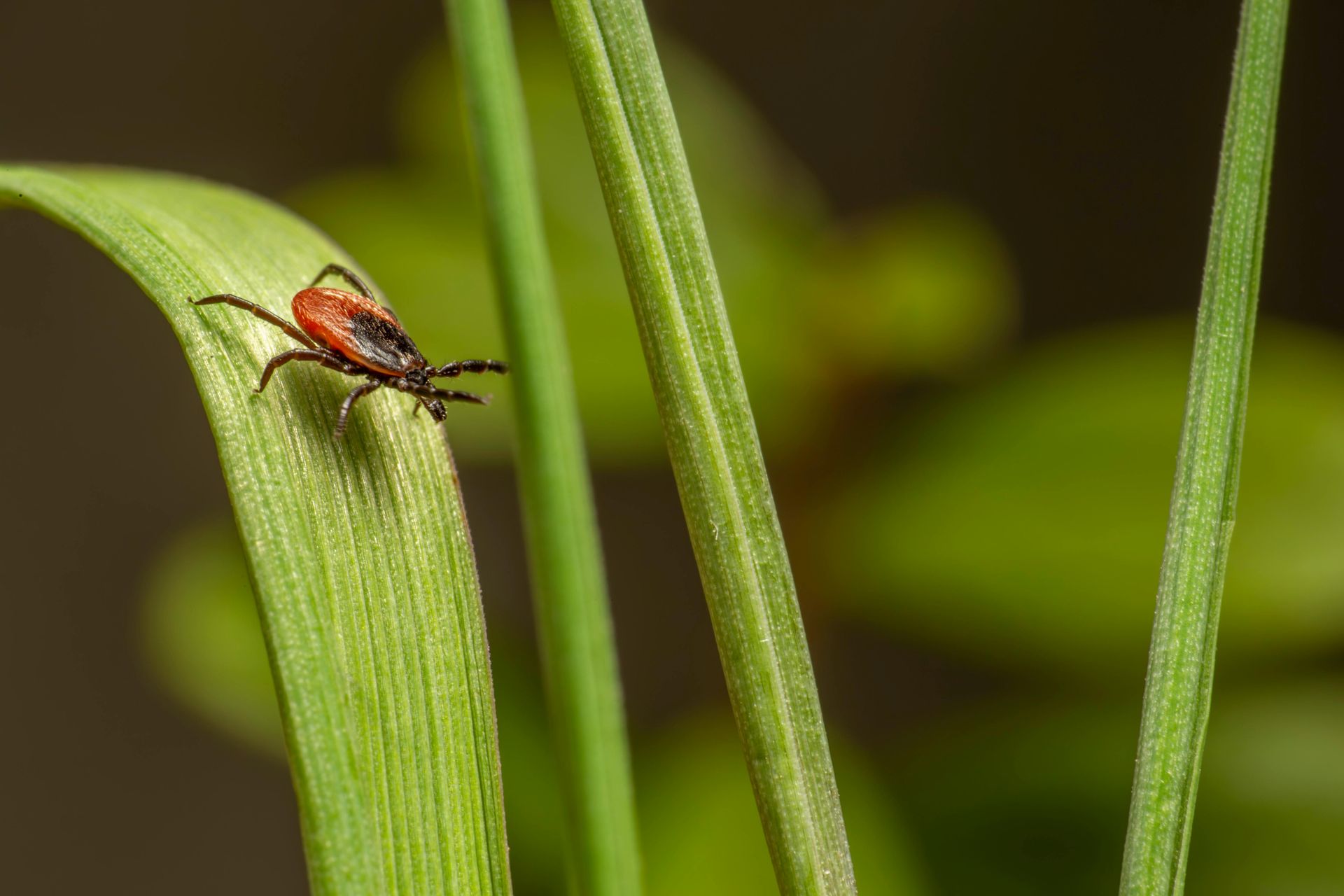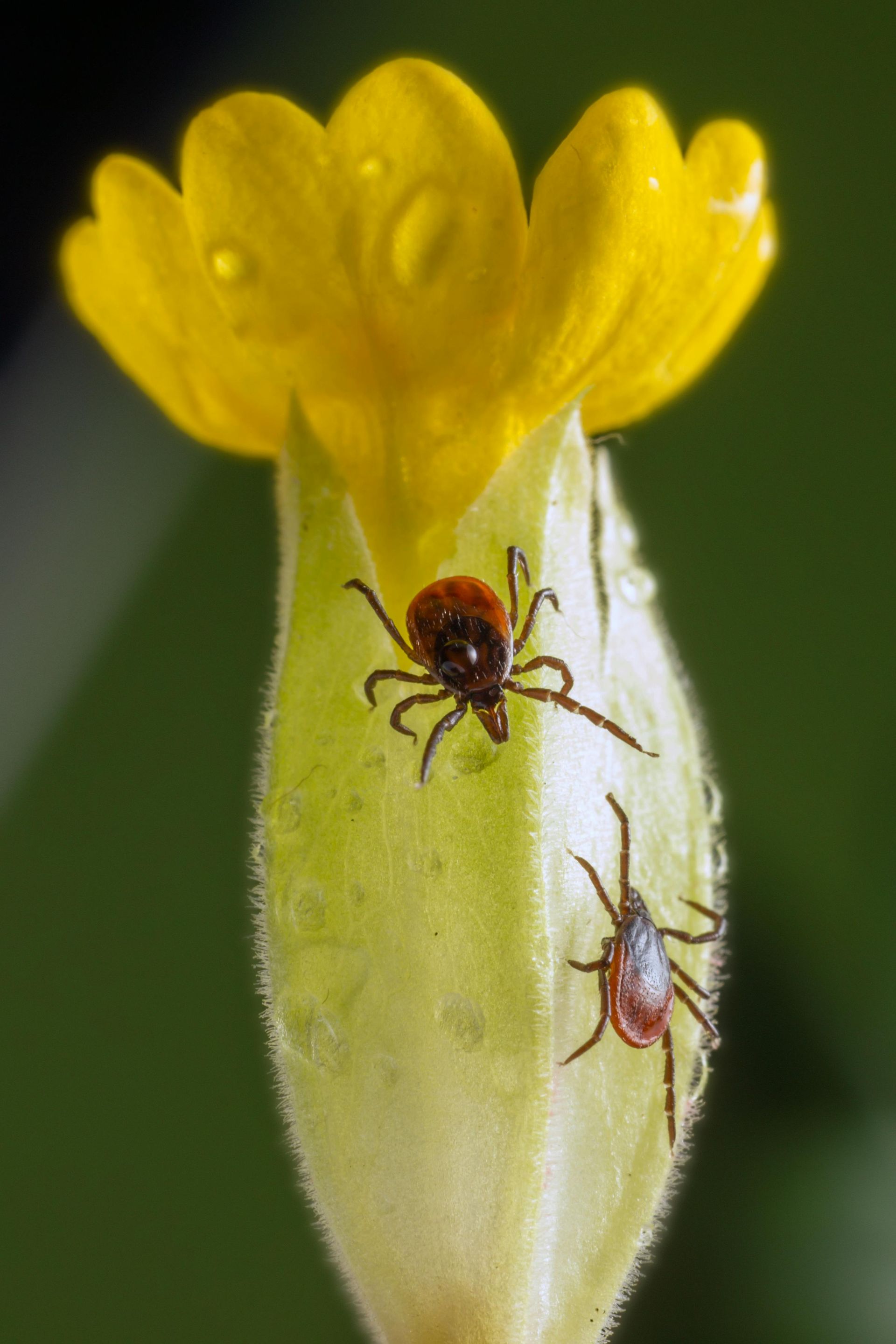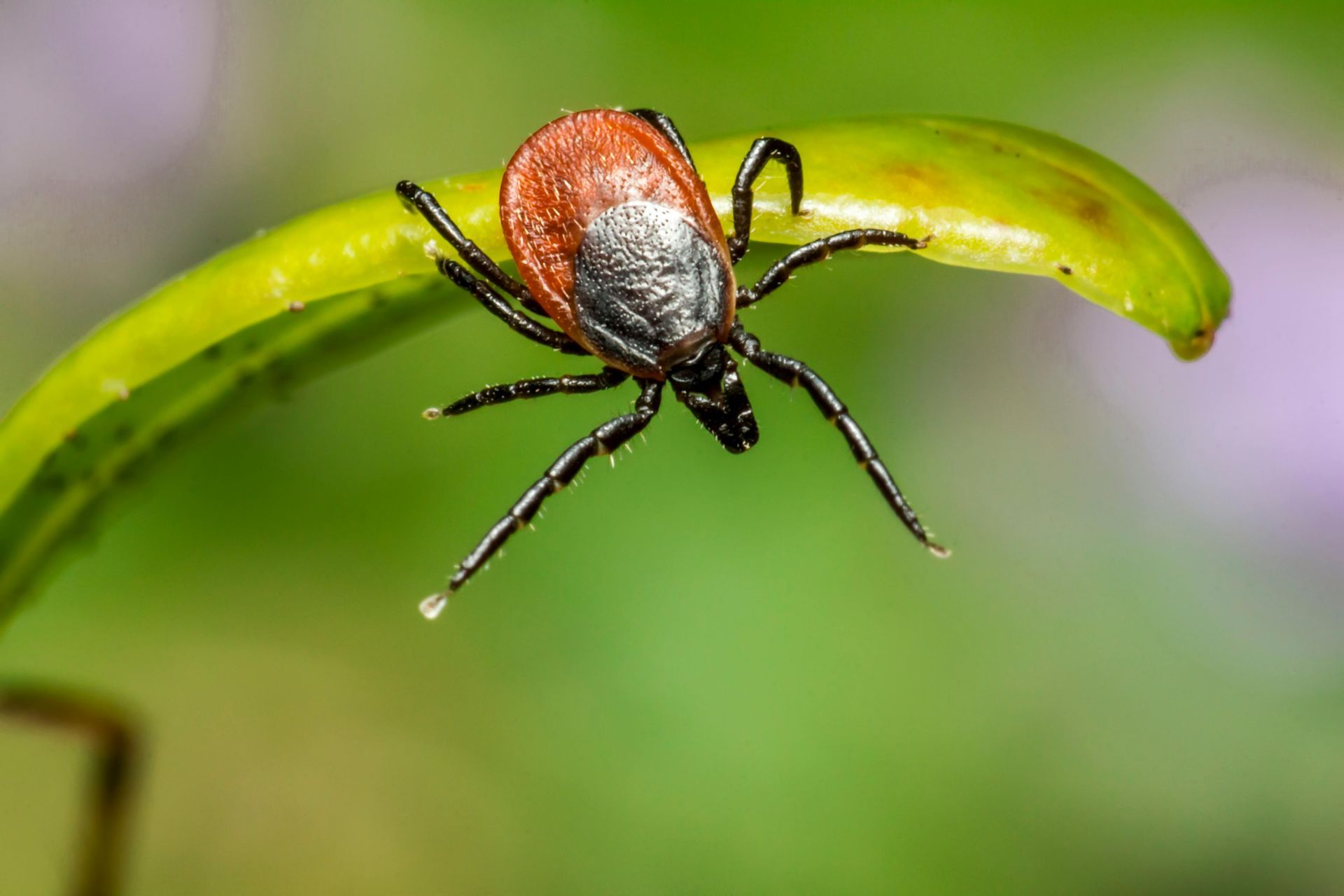Ticks Pest Control in Carrizo Springs, TX
Keeping your outdoor space free of these disease-carrying parasites necessitates tick treatment for yards. Long's Pest Control offers professional tick extermination services tailored to the particular needs of your property using more than 70 years of knowledge.
We use safe, powerful remedies shown to be successful in fighting ticks, a hazard to your loved ones, pets, and cattle. Our family-owned and run company provides total eradication and long-lasting protection regardless of the degree of your infestation.
Three generations of expertise guarantees that we will provide a professional, thorough
tick infestation removal. For more information, call us right away!
4 Signs of Tick Infestation
Frequent Tick Bites on Pets or Family Members
Your yard can be a breeding environment if you or your pets are arriving inside carrying ticks stuck to their skin. Dangerous infections like Lyme disease or Rocky Mountain spotted fever can be contracted even from one bite.
Unexplained Rashes or Flu-like Symptoms
Many times, ticks are undetectable until symptoms start. Should you or a family member develop red, spreading rashes, muscle aches, or fever following outdoor activity, you might have come into contact with ticks.
Tick Sightings in Tall Grass or Shaded Areas
Ticks especially in overgrown grass or piles of leaves thrive in damp, shady conditions. Ticks found in your outdoor area are probably depositing eggs and rapidly proliferating.
Wildlife Activity Near Your Property
Tick-carrying deer, rats, and stray animals can cause infestations in your yard. Your chance of a tick problem rises dramatically if you regularly find these creatures close to your house.
Where Do Ticks Come From and Why Are They Hard to Eliminate?
Wildlife, like deer, raccoons, and rats, unintentionally brings ticks into your yard and onto homes and businesses. Because they thrive in shaded, humid environments with tall grass, dense brush, and leaf heaps, these pests are tough to find.
Unlike many other parasites, ticks quietly await greenery and cling to any passing victim, including humans and dogs; they do not leap or fly. DIY eradication is practically impossible given their capacity to remain dormant and withstand harsh environments for up to three years.
Because ticks release hundreds of eggs at once, a little problem can quickly become a major epidemic. But worry not, Long's Pest Control has the tools, knowledge, and proven techniques needed to completely eliminate ticks at all phases of their existence, ensuring long-term prevention and guarantee of their total extermination.

Expert Tips to Prevent Ticks from Returning
Keep Grass Trimmed and Remove Yard Debris — Perfect habitat for ticks comes from tall grass, leaf piles, and overgrown plants. Frequent grass maintenance and yard cleanup help to minimize the places where ticks might hide.
Create a Barrier Between Your Lawn and Wooded Areas — Ticks travel from woody regions, hence building a mulch or gravel barrier around your yard will help to prevent them. This basic action produces a dry, hostile environment that prevents tick entrance.
Treat Pets with Vet-Approved Tick Prevention — Dogs and cats can sometimes bring ticks inside the house, turning a minor outdoor problem into a household epidemic. Giving your pets veterinarian-approved tick medications helps reduce the likelihood of ticks invading your home.
Install Fencing to Keep Wildlife Out — Ticks can enter your yard through deer, rats, and stray animals, therefore raising your chance of an infestation. By keeping these animals out, a strong fence limits the tick distribution on your land.
Use Tick-Repellent Landscaping — Including tick-repelling plants like lavender, rosemary, or garlic into your landscape will help to naturally discourage ticks. These plants release smells that ticks find objectionable, lessening their presence in your yard.
Schedule Professional Tick Treatment for Yard
— Some ticks will survive even with preventative actions without professional help. This is why Long's Pest Control's regular treatments guarantee that ticks are eradicated at the source and won't resurgence.
Ticked off?
We’ve got the cure!
At Long's Pest Control, we are not merely removing ticks; we are eliminating them with the precision and expertise that have been accumulated over the course of three generations. Since they call for more than a temporary fix, we use ecologically friendly, efficient ways to guard your home against tick infestations.
Our team is experienced in the unique challenges related to tick control in Texas and has modern techniques to ensure continuous protection. Always putting your family's health first, we are proud of our standing for offering expert, safe, and
efficient pest control solutions. Our more than 70 years of expertise have helped us to build a reputation for outstanding service, dependability, and trust in Carrizo Springs and the nearby areas.
Why Choose Our Tick Pest Control?
Over 70 Years of Experience
We have been in the pest control business since 1946, and it has given us proven knowledge in the effective and permanent elimination of ticks. Our years of expertise ensure that we apply the most successful techniques for every infestation.
Family-Owned, Community-Trusted
Being a family-run, third-generation company, we treat every customer like a neighbor. We approach you personally so that you will be confident and at ease all through the procedure.
Pet- and Child-Safe Solutions
The first thing on our minds is your family's safety. We guarantee the protection of your house and pets by using odorless, ecologically friendly treatments that efficiently eliminate ticks.
Reliable, 24/7 Emergency Services
Tick infestations spread rapidly, hence waiting is not always a choice. We thus provide
24/7 emergency pest control to guarantee our availability when most needed.
Don’t let ticks take a bite out of your summer!
Never let parasites threaten your family or pets; our expert tick removal treatments are always here to back you up. Long's Pest Control guarantees that your yard and house are free of ticks all year long in line with our decades of knowledge and verified techniques.
If you’re searching for “tick control near me”, get in touch with us right now to schedule a thorough tick treatment for your yard and protect your property from pests.
FAQs
How do I know if I need tick treatment for my yard?
Professional treatment is needed to eradicate ticks before they spread if you or your pets are regularly bitten or if you find them on your grass or land.
What makes Long’s Pest Control different from other tick extermination companies?
Our services are tailored and backed by three generations of knowledge; we also apply treatments safe for pets and children. Our combined experience spans more than 70 years. Our neighborhood knows us for exactly that.
Do you offer scorpions pest control as well?
Yes! Apart from eradication of ticks, our area of expertise is scorpion pest control and several other types of pest management. We make sure your house remains safe from several kinds of harmful insects.
How often should I get professional tick treatment?
Seasonal tick treatments—especially in warmer months when ticks are most active—are advised for optimal results. Frequent upkeep maintains your yard safe all year long and helps to prevent reinfestation.
Are your tick extermination methods safe for my family and pets?
Of course! Only odorless, EPA-approved compounds that are safe for dogs and children and yet rather powerful against ticks are used here at Long’s Pest Control.


